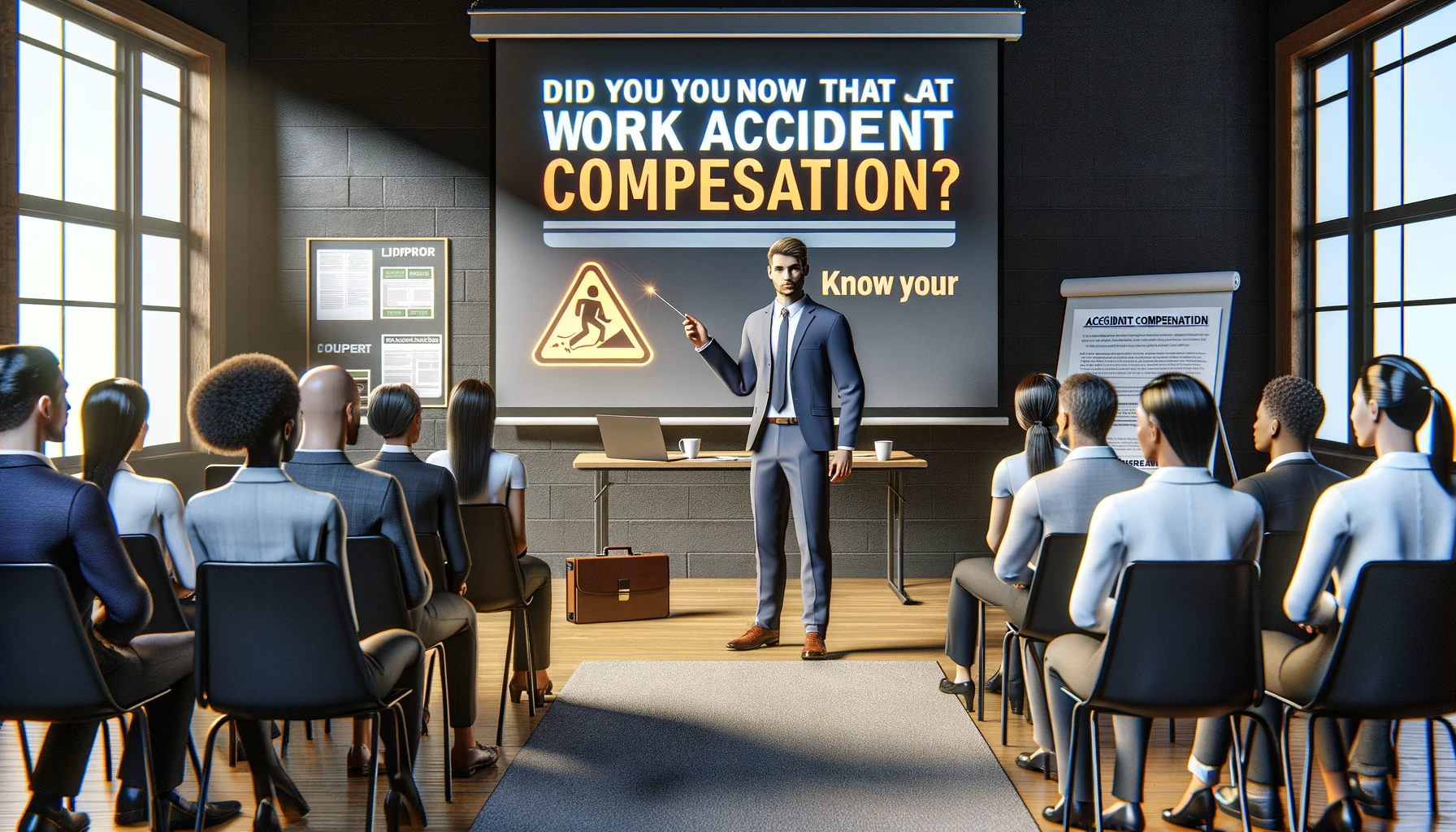Workplace injuries can be overwhelming and distressing, particularly when they occur without any documentation to support your claim. However, even in such challenging circumstances, there are steps you can take to safeguard your rights and ensure that you receive the compensation you deserve. This article will delve deeper into the topic, providing comprehensive guidance on dealing with undocumented work injuries, workers' compensation claims, and the importance of proper documentation.


Understanding Workers' Compensation Claims
Workers' compensation is a vital form of insurance that offers wage replacement and medical benefits to employees who sustain injuries during the course of their employment. It is a system devised to assist workers in their recovery without the necessity of resorting to litigation. Nonetheless, for a workers' compensation claim to be successful, documentation often plays a pivotal role. Therefore, understanding your rights as an injured employee and your employer's responsibilities under occupational health and safety regulations is the initial step in navigating this intricate process.
Immediate Steps After an Undocumented Work Injury
When you find yourself confronted with an undocumented work injury, your first priority should be seeking immediate medical attention. Your health is of paramount importance, and a thorough examination by a medical professional can serve as an initial form of documentation. Following your medical visit, it is imperative to report the accident to your employer as swiftly as possible, even if there are no witnesses or concrete evidence to substantiate your claim. Timely reporting is a crucial aspect of the workplace incident reporting protocol.How to Report a Workplace Injury Without Documentation
Reporting work-related accidents should be done meticulously, even in the absence of supporting documentation. If your workplace provides an employee accident report form, make sure to fill it out comprehensively, describing the incident to the best of your ability. The promptness and accuracy of your report can significantly impact the outcome of your workers' compensation claim.Gathering Evidence for an Undocumented Work Injury
In cases where there is no concrete evidence or witnesses, it becomes essential to take proactive steps to build a robust case. Begin by recording your own detailed account of the events while they are still fresh in your memory. Additionally, reach out to your colleagues who might have witnessed the incident or possess information about the unsafe conditions that led to your injury. Investigate whether there is any surveillance footage within your workplace that may have captured the incident. Every piece of evidence, no matter how circumstantial it may seem, can potentially strengthen your case.Legal Advice for Workplace Injuries
Sometimes, navigating the complexities of a workplace injury claim without documentation may require professional legal assistance. Seeking legal advice in the aftermath of a workplace injury is a wise course of action, particularly if you encounter resistance from your employer or their insurance company. A consultation with a work injury lawyer can help clarify your legal position and guide you through the necessary steps following a work-related injury.Dealing with an Accident at Work with No Witnesses
Facing an accident at work with no witnesses can undoubtedly complicate your claim, but it is not an insurmountable obstacle. Under most circumstances, your employer remains liable for employee injuries, and understanding employer liability for employee injuries can be advantageous to your case. It is crucial to be persistent in your efforts and gather as much indirect evidence as possible to bolster your claim.
Navigating Insurance Claims for Work Injuries Without Evidence
Handling insurance claims for work injuries can be contentious when there is a lack of concrete evidence. However, it is important to note that proving a work-related injury can also be achieved through circumstantial evidence, medical evaluations, and consistency in your reports. Ensure that all your interactions with occupational health services and safety assessments are meticulously recorded and presented to substantiate your claim.What to Do If Your Employer Disputes Your Claim
If your employer disputes your workers' compensation claim due to a lack of evidence, it is crucial not to lose hope. You have the option to request a review or file an appeal, providing additional information and evidence to support your claim. Documentation, such as the completed employee accident report form, medical records, and any correspondence related to the injury, can play a pivotal role in strengthening your case during this phase.Long-Term Considerations
Beyond dealing with the immediate aftermath of a workplace injury, it is prudent to consider long-term strategies to protect yourself and promote workplace safety. Advocating for improved workplace safety measures and maintaining personal records of any future incidents or near-misses can be invaluable if you ever find yourself facing a similar situation in the future. These records serve as a proactive approach to safeguarding your well-being and legal rights.Conclusion
Sustaining a work-related injury without proper documentation can indeed pose significant challenges, but it is not an insurmountable obstacle. By taking prompt action, including seeking immediate medical attention and reporting the incident promptly, you can initiate the process of navigating the complexities of workers' compensation claims. Remember that your health and safety should always be your top priorities, so do not hesitate to seek medical attention and legal advice when necessary. Staying informed, proactive, and diligent will equip you to handle any workplace injury, whether it is documented or not.Look for an attorney who has the right legal resources for your legal needs.
Contact us here on the Warmuth Law website or through our hotline 888-517-9888.











